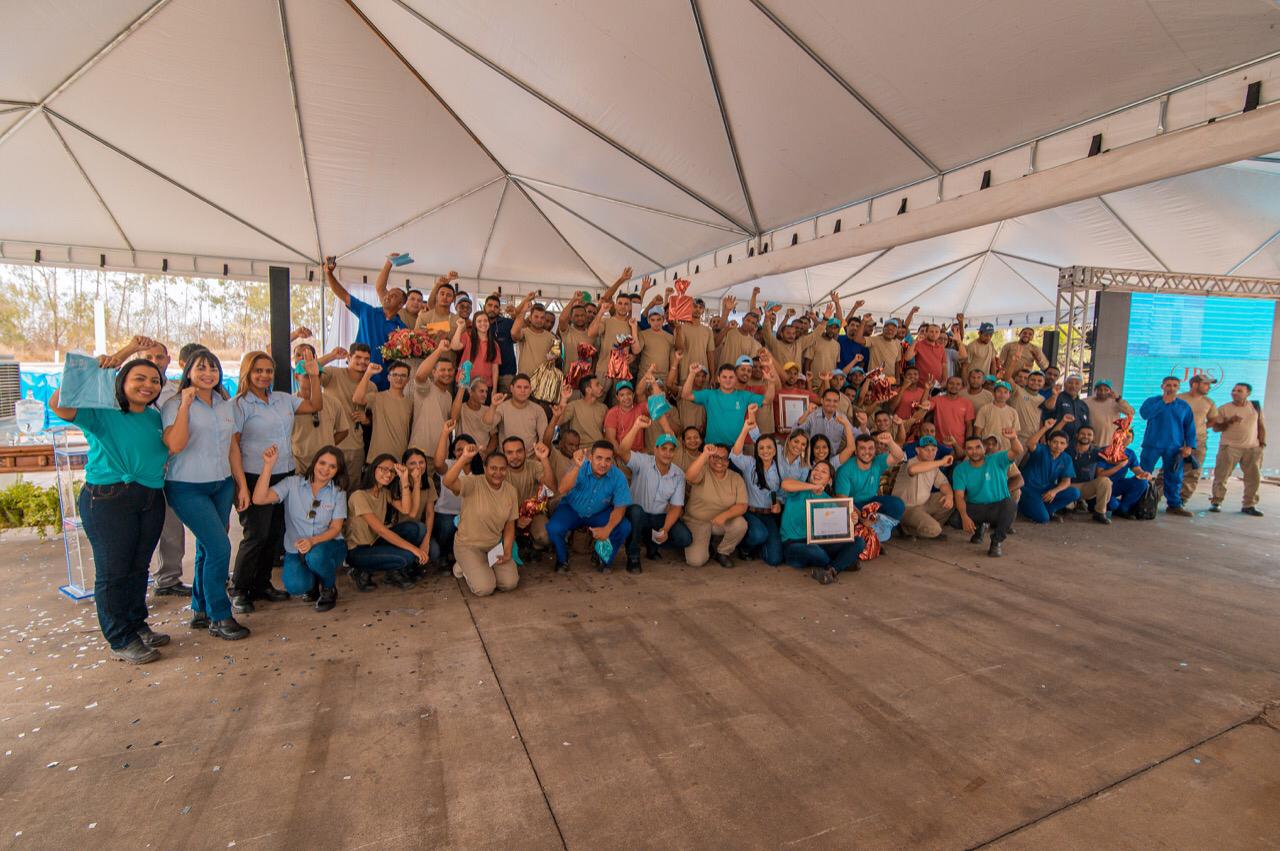The leather sector in Brazil has a new reference in sustainability: JBS Couros' Marabá unit (PA) is the first tannery dedicated to the production of wet blue leather to be recognized with the Gold Seal from the Brazilian Leather Certification of Sustainability (CSCB). This milestone attests that the company uses best practices in the tripod of economy, society and environment, in accordance with the norm ABNT NBR 16.296 after having been audited by an INMETRO accredited organization.
The audit assessed environmental, social, economic, and sustainability dimensions and the Marabá unit achieved an average of 97% out of all 160 items, with zero non-compliance. For the CSCB, a sustainable tannery is one that develops its activities producing economic results, reducing environmental impact, providing healthy working conditions, and interacting positively with all other interested parties.
An award ceremony was held at the JBS Couros plant in Marabá and attended by company directors, employees, and local authorities, as well as representatives of the CSCB and the Centre for the Brazilian Tanning Industry (CICB), a national entity that encourages certification. José Fernando Bello, the CICB's executive president, highlighted one of the most important aspects of obtaining a certification of this character on the occasion: it's a guarantee demanded by clients whose demands in the current market require transparency to permeate the industry at every level.
Created in 2009, JBS Couros operates in production of wet blue, semi-finished, and finished leathers. Its global business structure makes JBS an important choice for companies that need high production capacity, quality, and delivery assurance coupled with innovation in order to serve increasingly demanding markets. They've been present in Marabá for 11 years producing wet blue leathers with over 150 employees. After finishing, the leathers are used primarily in the automotive, furniture, and footwear sectors.
Over the next three years, the JBS unit will follow a schedule of audits, assessments, and re-certifications to maintain their Gold level or perhaps even reach the Diamond level, ensuring their full commitment to improving processes. Álvaro Flores, the CSCB's technical coordinator, emphasizes that the changes brought about by the certification process - rooting all agents into the culture of sustainability - are one of the points that have drawn the most attention at the technical and scientific congresses where the seal has been presented. In 2019 alone, the CSCB was invited to share its experience at events in Dresden (Germany), New York, Paris, Rio de Janeiro, and Milan.
About the CSCB
The Brazilian Leather Certification of Sustainability (CSCB) was built by the chain that integrates the country's leather industry and is supported by the Brazilian Leather Project - an initiative of the CICB and the Brazilian Trade and Investment Promotion Agency (Apex-Brazil) to encourage the participation of Brazil's leathers in foreign markets. The CSCB promotes and recognizes best tannery practices in regard to economic results, reduction of environmental impact, and relationships with employees and communities. There are 173 indicators included in the CSCB such as: water consumption reduction, energy consumption reduction, product quality control, restricted substances use, management, worker health and safety.
How to get the CSCB
After joining the CSCB, each company starts work on the improvement of each of the 173 different indicators. After meeting, registering, and ensuring the continuity of each item, the tannery may then request an audit by an INMETRO accredited organization for certification. There are four levels to the seal: bronze (for those who meet up to 50% of the applicable indicators for each of the four certification dimensions); silver (75%); gold (90%); and diamond (100%).
About JBS Couros
JBS created their leather business unit in 2009 as an important part of its strategy to add value to the supply chain. JBS Couros is the largest leather processing industry in the world with 21 production units, three cutting units, five distribution centers, three showrooms, and four commercial offices on four continents. The company currently has about 7,300 employees worldwide and produces wet blue, semi-finished, and finished leathers for the automotive, furniture, footwear, and artifact sectors. In leather processing terms, clear and standardized procedures combined with constant investments in technology and training help make JBS Couros one of the most modern companies in the world, transforming organic materials into noble, quality products widely used in global industries.









